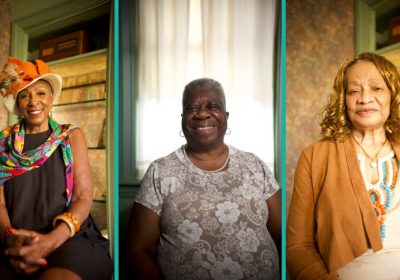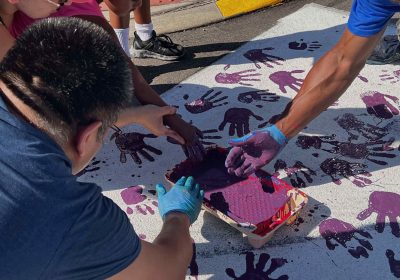“I’m not mad, I’m not sad, and I don’t expect you to apologize,” Aurora Sanchez, a youth mentor at Lucien E. Blackwell West Philadelphia Regional Library, coolly told two normally well-behaved young men who were now regretting clowning with her during a serious part of a book discussion.
“But if you’ll do it to me, you’ll do it someone else and then this isn’t a safe place, this thing that we’re trying to work on and create where people can just come and be themselves.”
After taking a couple of walks around the building to think things over, the youth stayed late to talk about how they acted. In their written reflections for the week both said they wanted to work on learning when to stop.
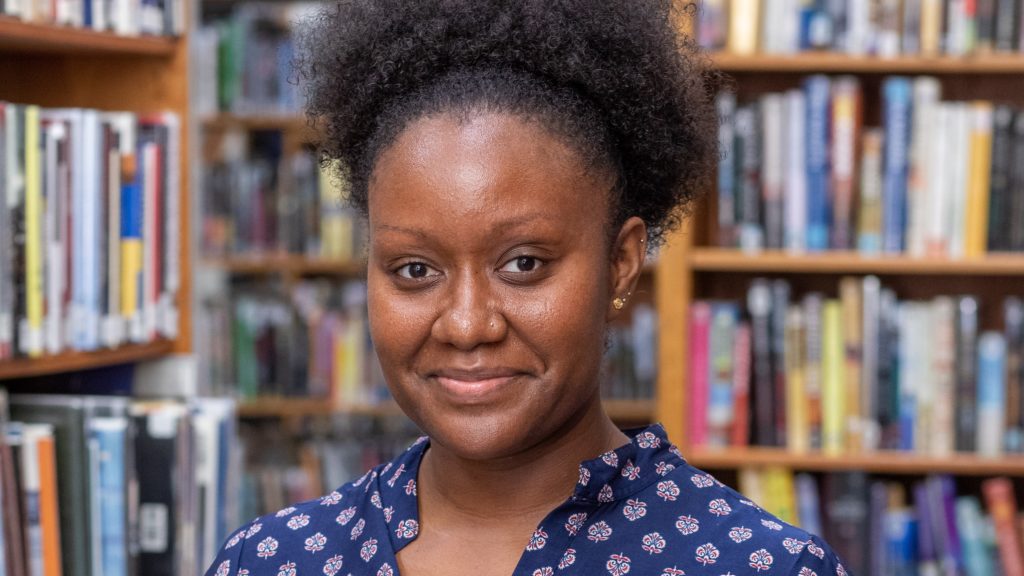
A safe, supportive environment
That ‘safe place’ Sanchez has been cultivating for the last two years, where young people can build important life skills in a supportive environment, is Teen Reading Lounge (TRL), a civic engagement book club created by the Pennsylvania Humanities Council (PHC). Blackwell is one of nearly 100 sites statewide that have been supported by PHC since the program debuted in 2010.
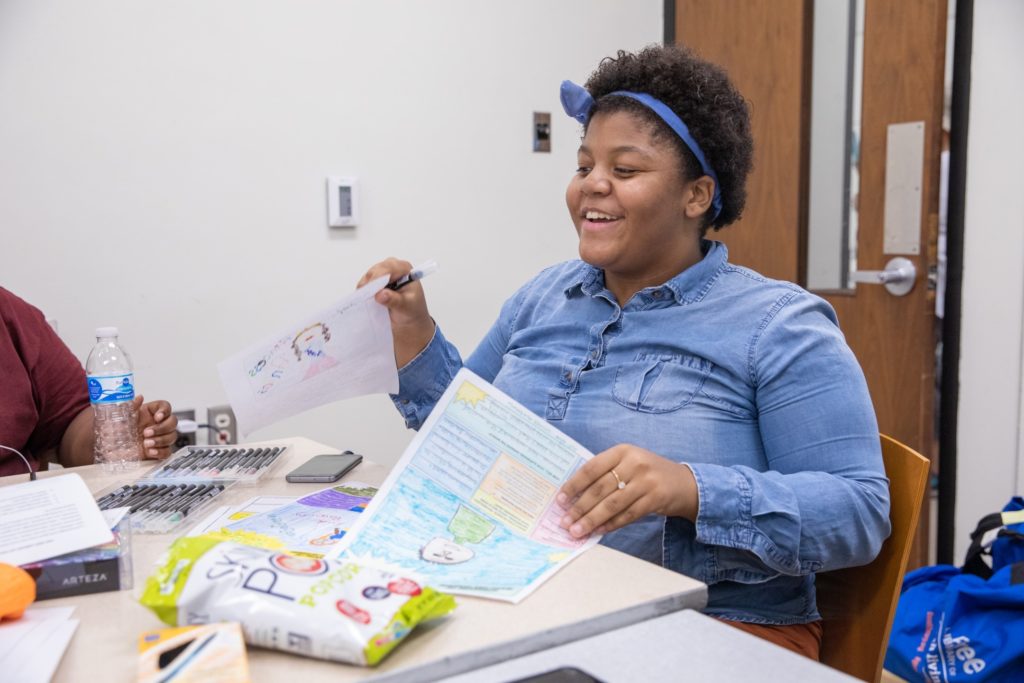
Teen Reading Lounge at Blackwell has been attracting and engaging African American youth, including a large percentage of young men, in humanities discussions and projects in a culturally rich neighborhood experiencing the pressures of gentrification, crime, and poverty. At the request of the young people involved, the library plans to double their offerings of the program from once to twice a week starting this fall.
“This is it,” said Sanchez. “If you’re looking for a model, if you’re looking for a youth program, if you’re looking to create a book club that’s going to really have the elements that will make young people want to be there and stay engaged, this is it.”
As a Teen Reading Lounge facilitator at the Free Library of Philadelphia with over 15 years of experience in youth development, Sanchez knows firsthand what works and what doesn’t.
She started her career at Upward Bound through a Temple University work-study, then went on to EducationWorks in both North and South Philly. In 2004 she landed another work-study at the Free Library working with kids and teaching Spanish to adults. From 2006 to 2018 her role shifted to facilitating and supervising after school programs. Now she is the Free Library’s Healthy Communities Coordinator while concurrently being a YOUTHadelphia Program Advisor for the Philadelphia Foundation.
“If you’re looking for a model, if you’re looking for a youth program, if you’re looking to create a book club that’s going to really have the elements that will make young people want to be there and stay engaged, this is it.”
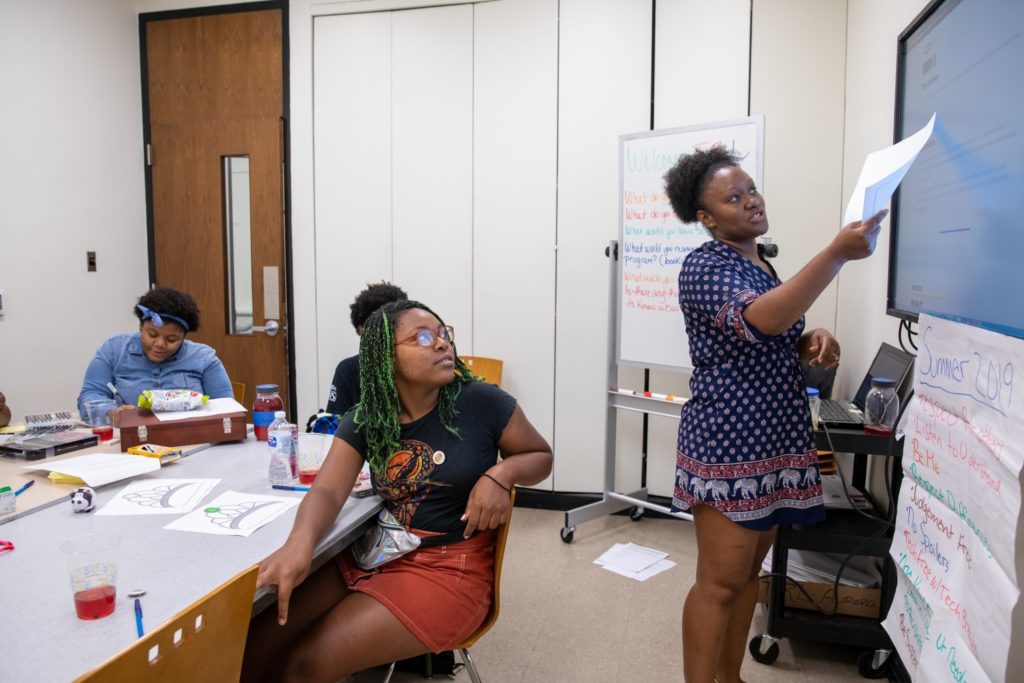
Serving youth of color and youth experiencing poverty
“Openness of the model is what makes Teen Reading Lounge effective,” said Sanchez. “Young people come to meetings because they want to come to meetings.”
In Teen Reading Lounge, participants select the books they will read, engage in deep discussions with the support of an adult facilitator, and work together on humanities-inspired creative and civic engagement projects.
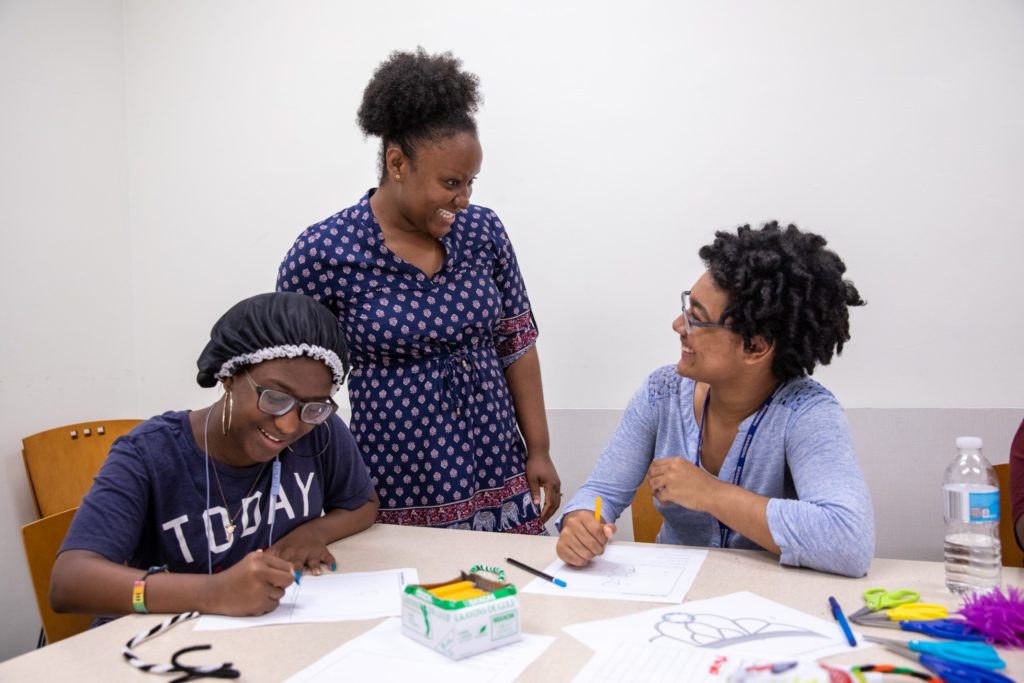
Through participant surveys and feedback from Teen Reading Lounge youth workers, Pennsylvania Humanities Council staff found that the program seemed most effective with youth experiencing poverty and youth of color. In 2018 they commissioned a study with the Allegheny Intermediate Unit to dive into the data which not only confirmed their observations but discovered it was improving vital social-emotional learning skills like self-awareness and responsible decision-making.
A big part of the appeal at Blackwell is also Sanchez herself who radiates a buoyant, positive energy but is seasoned enough to know when to be serious and has no tolerance for bullying.
“You set healthy boundaries and you model healthy behaviors,” she said. “It’s okay to be themselves and we can have fun but we can have boundaries.”
Sanchez says she remembers what it’s like to be a teen and that makes her feel connected to young people.
“I appreciate the space that teenagers are in,” she said. “I have very vivid memories of being a young person and how hypocritical adults were with me. Adults wanted me to be a child when it was convenient for them and they wanted me to be an adult when it was convenient for them. I didn’t always understand the rationale. Those experiences stuck with me.”
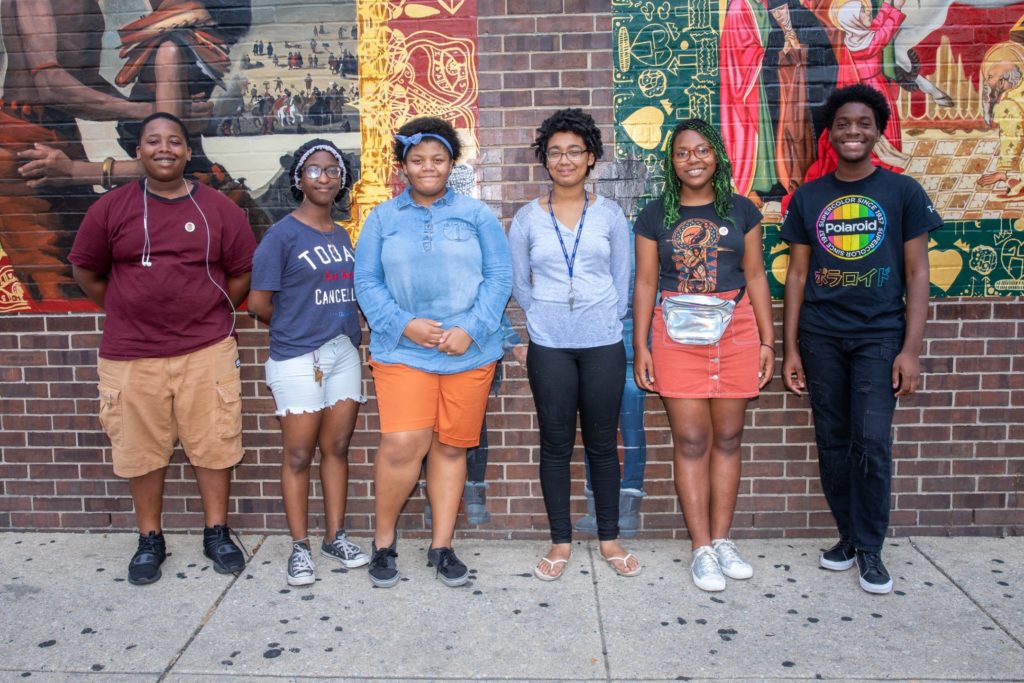
Using the humanities to inspire
Sanchez has brought her empathetic, youth-centered approach to the three cycles of Teen Reading Lounge she’s facilitated so far, each lasting about two months. The books selected are written by People of Color, focusing on themes of race, power, and sexuality. The literature never fails to spark powerful discussions and directly appeals to the concerns of neighborhood kids, whose personal experiences run deep.
The most recent summer cycle started with a celebratory book giveaway.
“They were so excited — they lit up!” said Sanchez.
One young man hauled a stack of ten books home to show his family and his mother and grandmother ended up reading them alongside him.
“Not only does he have access but the adults in his family are taking an interest. You can’t ask for much more.”
The teens’ readings, projects, and activities have been capturing their imaginations and connecting them to their community and world by exploring new ideas through the humanities.
There are also some very special events.
When the young people at Blackwell read Dear Martin, Sanchez performed a small miracle and managed to get Nic Stone, the book’s popular author, to video chat with the group. The young people had a rare chance to speak to a high profile YA writer and ask Stone questions about her life and work and share their own experiences.
“She was so flawless and incredible,” said one of the young men later.
After discussing Dear Martin, which focuses on the themes of police brutality and code switching, the youth made three PSA videos with the help of Lil’ Filmmakers, a local production company. They wanted to encourage other young people to do the right thing and do their part to make the world a better place.
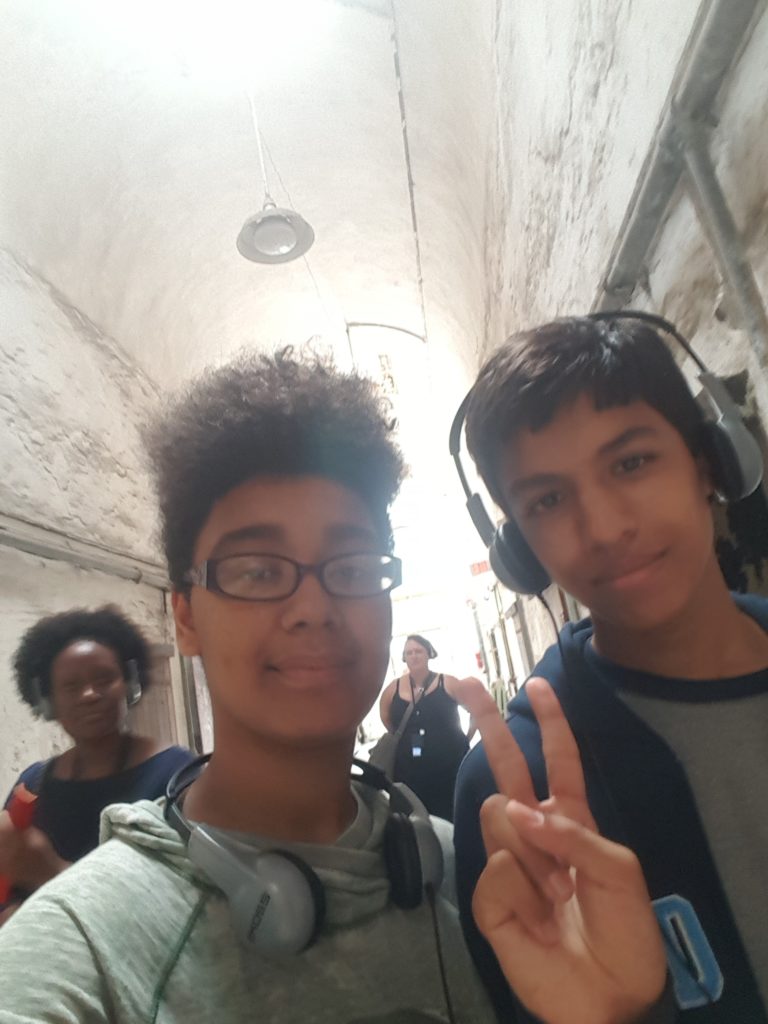
In another cycle of the program, the group took a field trip to Eastern State Penitentiary to learn more about the criminal justice system after conversations about the purposes of punitive justice that arose from reading Children of Blood and Bone, a novel by the Nigerian-American novelist Tomi Adeyemi.
Sanchez sees her group’s activities as showing the power of the humanities to inspire young people to engage deeper and make real change.
“Stories that reflect the complexities of lived experience can affirm and build bridges of compassion,” she said.
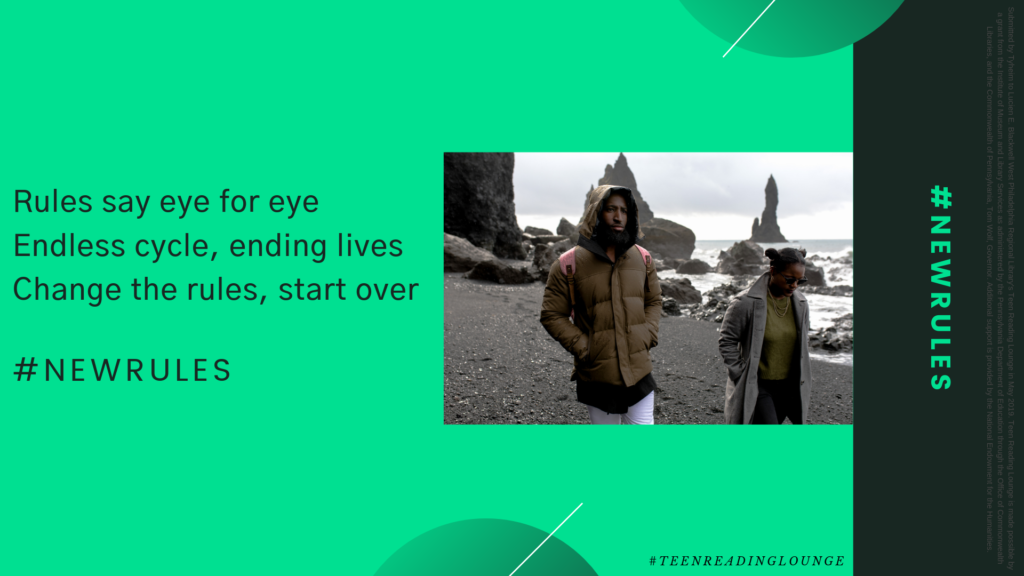
“Stories that reflect the complexities of lived experience can affirm and build bridges of compassion.”
Empowering future leaders
Sanchez has also supported the group in guided meditations, an anti-violence social media campaign, and community improvement projects. But she’s careful to encourage youth to only contribute at the level they feel most comfortable — and she never pressures them to read every book cover-to-cover.
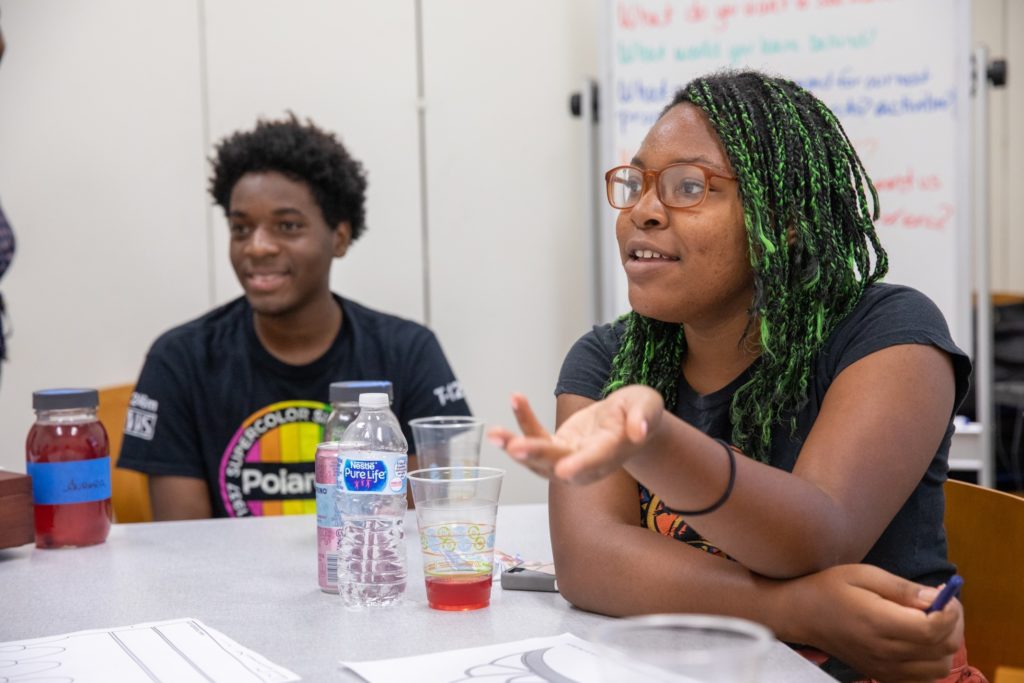
“We are really doing much more thinking about issues,” said Sanchez. “The book is just a part of that. We’re learning about the world around us and learning how we can make an impact.”
She says she wants to create a safe place where young people can use the humanities to talk about what matters most to them, working together to undo any negative stereotypes they see as holding them back.
“When you empower them to make decisions, you empower them to be the leaders,” said Sanchez. “It shows them that ‘no, no, no, I have a voice, and my voice matters.’”
Sometimes it isn’t easy work but she says she is always learning, especially through ongoing professional development opportunities provided by PHC. As important as training is, she says the heart of youth work is being real, being honest about mistakes, and treating young people as equals, like she yearned for when she was a teen.
“I try to bring my authentic self. I aspire to show them that I am human and flawed.”
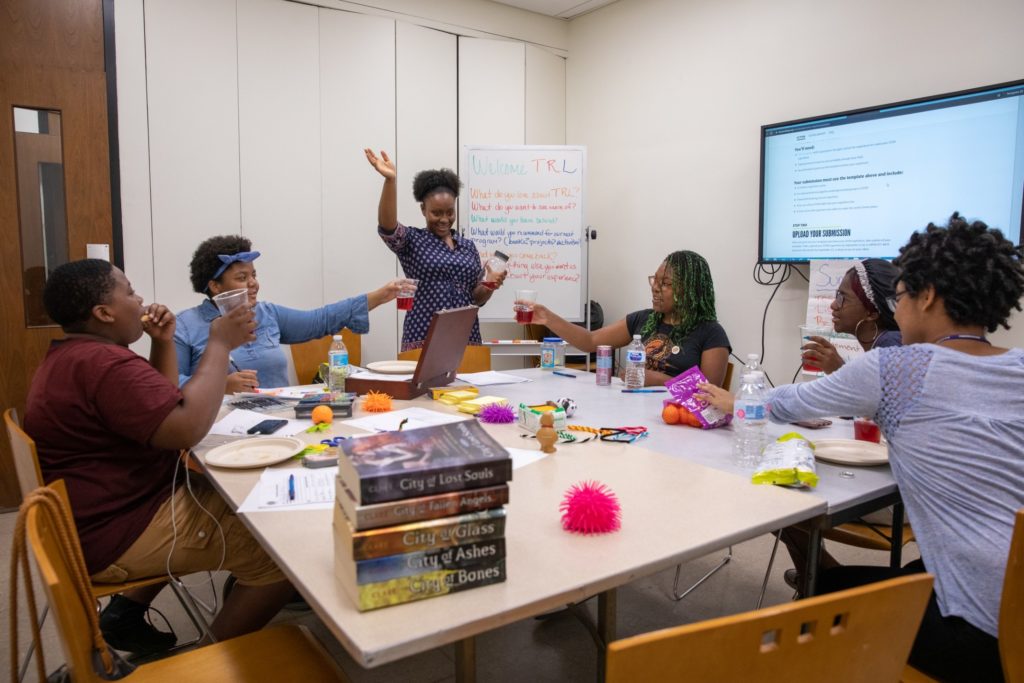
Teen Reading Lounge is made possible by Library Services and Technology Act (LSTA) funds from the U.S. Institute of Museum and Library Services administered by the Office of Commonwealth Libraries, Department of Education, Commonwealth of Pennsylvania, Tom Wolf, Governor. The views, findings, conclusions, or recommendations expressed in this website do not necessarily represent those of the U.S. Institute of Museum and Library Services or the Department of Education, Commonwealth of Pennsylvania. Additional support is provided by the National Endowment for the Humanities, generous individuals, foundations, and corporations.
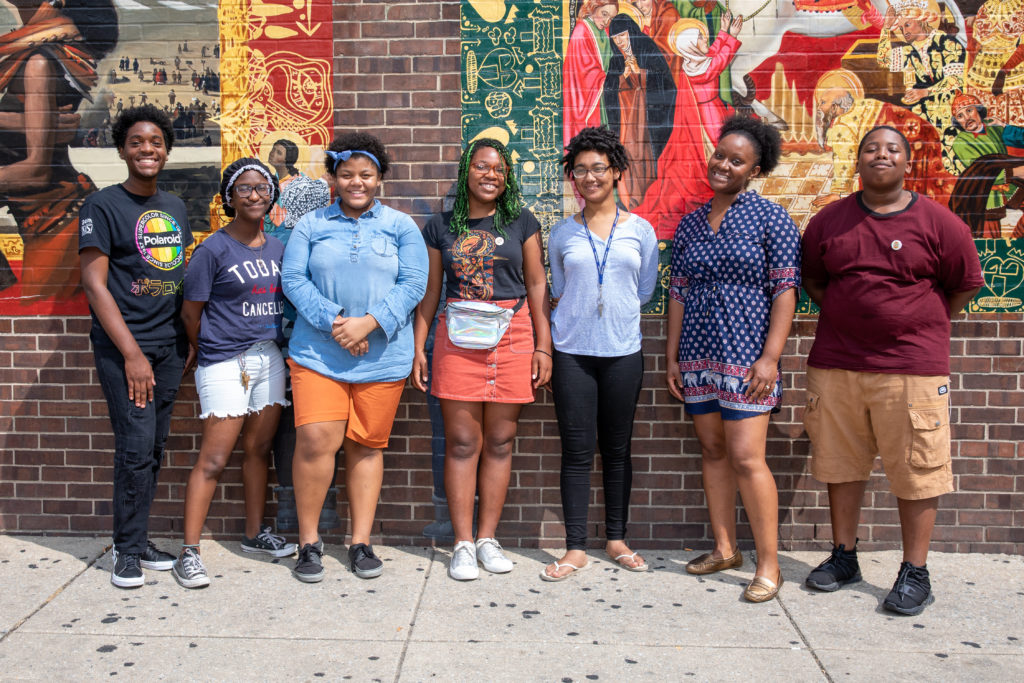
![[color – dark bg] PA SHARP FINAL FILES DB 72dpi [color - dark bg] PA SHARP FINAL FILES DB 72dpi](https://pahumanities.org/uploads/files/elementor/thumbs/color-dark-bg-PA-SHARP-FINAL-FILES-DB-72dpi-phgl7aimtfdpzt2rscvl43ksfv3asbbls19lsvuacw.jpg)
